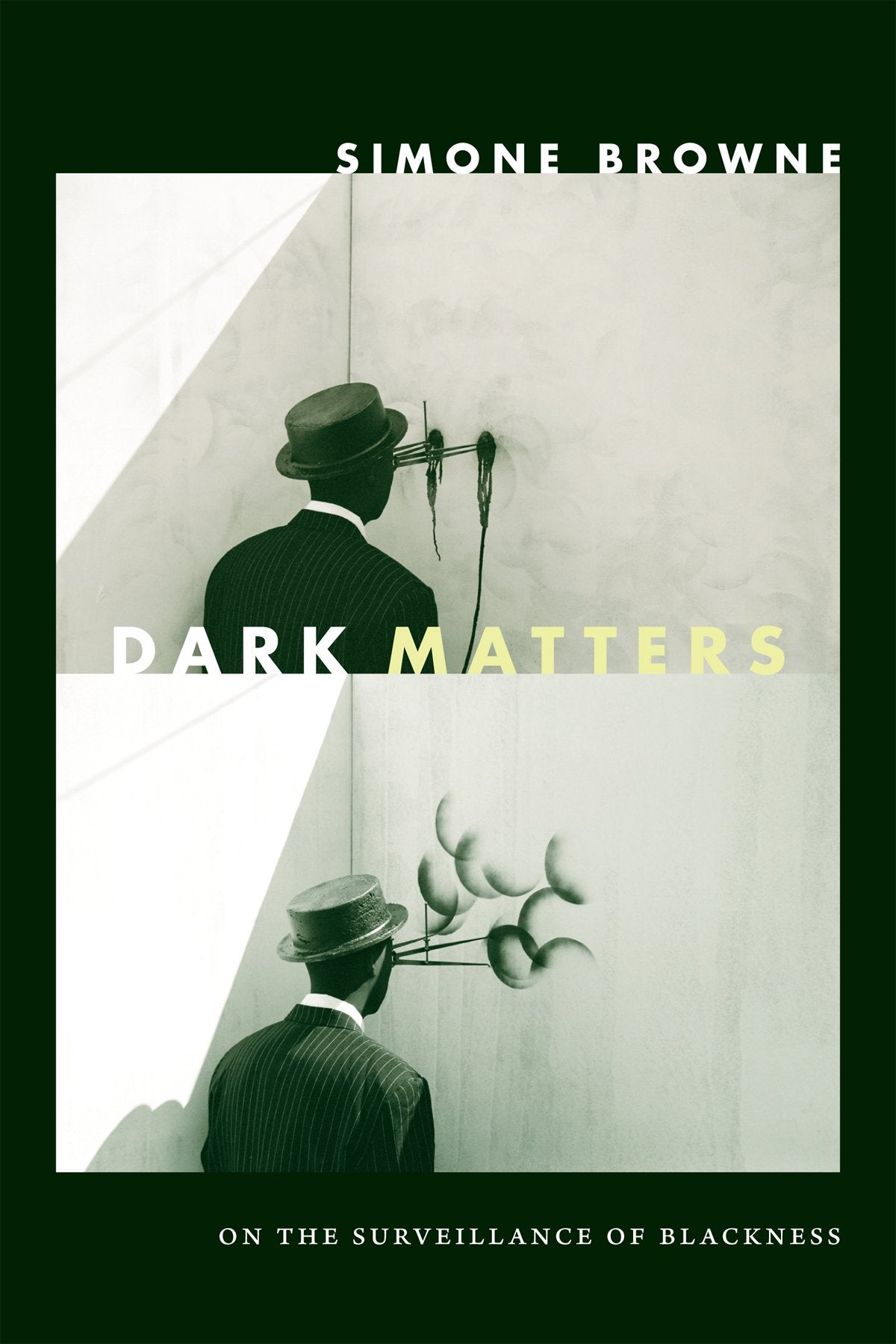Duke University Press
Dark Matters: On the Surveillance of Blackness
Regular price
$16.95 USD
Regular price
Sale price
$16.95 USD
Unit price
per
Shipping calculated at checkout.
Couldn't load pickup availability
Title: Dark Matters: On the Surveillance of Blackness
Author: Simone Browne
ISBN: 9780822359388
Publisher: Duke University Press
Published: 2015
Binding: Paperback
Language: English
Edition: Illustrated
Number of Pages: 224
Publisher Description: In <i>Dark Matters</i> Simone Browne locates the conditions of blackness as a key site through which surveillance is practiced, narrated, and resisted. She shows how contemporary surveillance technologies and practices are informed by the long history of racial formation and by the methods of policing black life under slavery, such as branding, runaway slave notices, and lantern laws. Placing surveillance studies into conversation with the archive of transatlantic slavery and its afterlife, Browne draws from black feminist theory, sociology, and cultural studies to analyze texts as diverse as the methods of surveilling blackness she discusses: from the design of the eighteenth-century slave ship <i>Brooks</i>, Jeremy Bentham's <i>Panopticon</i>, and <i>The Book of Negroes</i>, to contemporary art, literature, biometrics, and post-9/11 airport security practices. Surveillance, Browne asserts, is both a discursive and material practice that reifies boundaries, borders, and bodies around racial lines, so much so that the surveillance of blackness has long been, and continues to be, a social and political norm.
Author: Simone Browne
ISBN: 9780822359388
Publisher: Duke University Press
Published: 2015
Binding: Paperback
Language: English
Edition: Illustrated
Number of Pages: 224
Publisher Description: In <i>Dark Matters</i> Simone Browne locates the conditions of blackness as a key site through which surveillance is practiced, narrated, and resisted. She shows how contemporary surveillance technologies and practices are informed by the long history of racial formation and by the methods of policing black life under slavery, such as branding, runaway slave notices, and lantern laws. Placing surveillance studies into conversation with the archive of transatlantic slavery and its afterlife, Browne draws from black feminist theory, sociology, and cultural studies to analyze texts as diverse as the methods of surveilling blackness she discusses: from the design of the eighteenth-century slave ship <i>Brooks</i>, Jeremy Bentham's <i>Panopticon</i>, and <i>The Book of Negroes</i>, to contemporary art, literature, biometrics, and post-9/11 airport security practices. Surveillance, Browne asserts, is both a discursive and material practice that reifies boundaries, borders, and bodies around racial lines, so much so that the surveillance of blackness has long been, and continues to be, a social and political norm.

